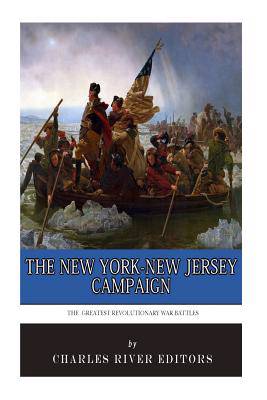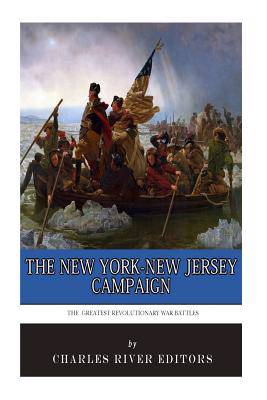
- Retrait gratuit dans votre magasin Club
- 7.000.000 titres dans notre catalogue
- Payer en toute sécurité
- Toujours un magasin près de chez vous
- Retrait gratuit dans votre magasin Club
- 7.000.0000 titres dans notre catalogue
- Payer en toute sécurité
- Toujours un magasin près de chez vous
The Greatest Revolutionary War Battles
The New York-New Jersey Campaign
Charles River
Livre broché | Anglais
12,95 €
+ 25 points
Description
*Includes pictures *Includes accounts of the fighting around New York City *Includes online resources and a bibliography for further reading *Includes a table of contents After the siege of Boston forced the British to evacuate that city in March 1776, Continental Army commander George Washington suspected that the British would move by sea to New York City, the next logical target in an attempt to end a colonial insurrection. He thus rushed his army south to defend the city. Washington guessed correctly, but it would be to no avail. Unlike Boston, New York City's terrain featured few defensible positions. The city lacked a high point from which to launch a siege, as the peninsula of Boston was fortunate to have. Moreover, Washington wasn't sure defending the city was necessary, hoping that an expedition launched toward Quebec like the one Benedict Arnold had led in late 1775 would keep the British away from New York anyway. However, Congress thought otherwise, and demanded that Washington defend New York. Washington thus did what he was told, and it nearly resulted in the army's demise. In the summer of 1776, the British conducted the largest amphibious expedition in North America's history at the time, landing over 20,000 troops on Long Island. British General William Howe, who had led the British at Bunker Hill and would later become commander in chief of the armies in North America, easily captured Staten Island, which Washington was incapable of defending without a proper navy. Washington's army attempted to fight, but Washington was badly outmaneuvered, and his army was nearly cut off from escape. The withdrawal across New York City was enormously disorderly, with many of Washington's troops so scared that they deserted. Others were sick as a result of the dysentery and smallpox plaguing the Continental Army in New York. In what was arguably the worst defeat of the Revolution, Washington was ashamed, and he also felt betrayed, by both his troops and Congress. To escape from New York, Washington led a tactical retreat across the East River and off Long Island in the middle of the night without British knowledge. This retreat prevented the annihilation of the colonial army in New York, but with Washington being pushed west across New Jersey and into Pennsylvania, Congress was forced to flee Philadelphia. And with this string of crucial British successes in 1776, the Revolution was on the brink of failure. The Continental Army, now in Pennsylvania, had lost over 5,000 men during its retreat through New York and New Jersey and now had fewer than 5,000 able soldiers. That winter, one of the men in camp, Thomas Paine, would write The American Crisis, beginning with the famous words, "These are the times that try men's souls." However, Washington would famously cross the Delaware River on Christmas night to attack British forces at Trenton, and he was able to compel the British to suspend the winter campaign after fighting around Princeton. Nonetheless, in the early months of 1777, the colonists were in dire straits and the British were plotting a campaign in the coming months to put down the revolution once and for all. The Greatest Revolutionary War Battles: The New York-New Jersey Campaign comprehensively covers the events that led up to the campaign, the fighting itself, and the aftermath of the conflict. Along with maps and pictures of important people, places, and events, you will learn about the campaign like never before, in no time at all.
Spécifications
Parties prenantes
- Auteur(s) :
- Editeur:
Contenu
- Nombre de pages :
- 58
- Langue:
- Anglais
Caractéristiques
- EAN:
- 9781514319598
- Date de parution :
- 12-06-15
- Format:
- Livre broché
- Format numérique:
- Trade paperback (VS)
- Dimensions :
- 152 mm x 229 mm
- Poids :
- 90 g

Les avis
Nous publions uniquement les avis qui respectent les conditions requises. Consultez nos conditions pour les avis.






